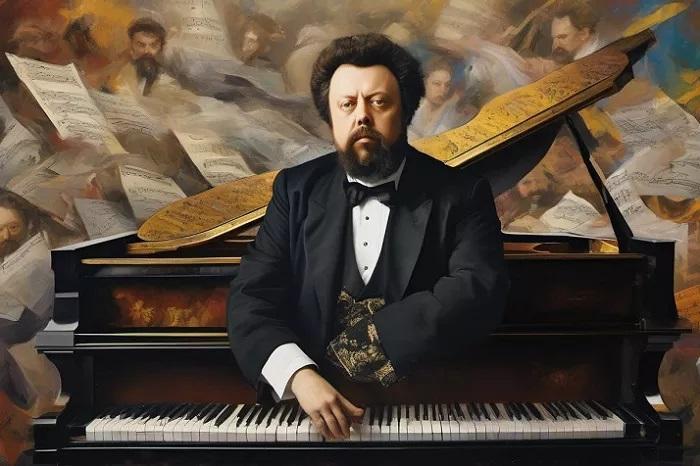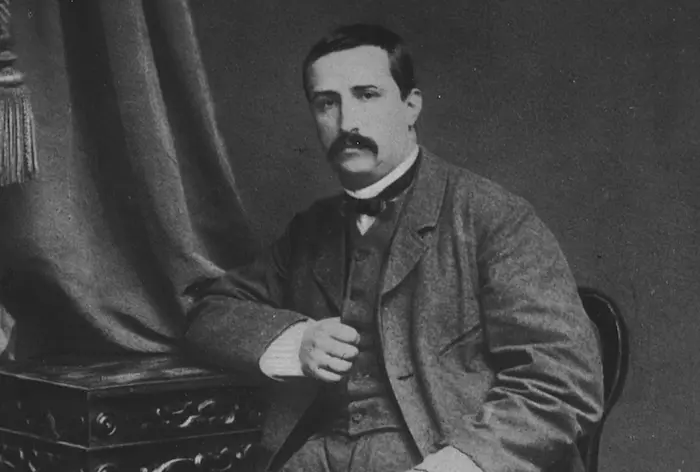The Greatest 19th Century Russian Composers and Their Music

The 19th century was a pivotal period for Russian classical music. Prior to this, Russia lacked a strong indigenous tradition of classical music. This was partly due to its geographical distance from Western Europe, where classical music was flourishing. The Russian Orthodox Church also discouraged secular music, which hindered its early development.
However, the situation began to change during the reign of Peter the Great, who sought to modernise Russia by embracing Western culture. He invited Western composers and musicians to his court, establishing Saint Petersburg as a centre for Western music. This generated interest in classical music among the Russian aristocracy.
During the 18th century, Italian opera was extremely popular at the Russian court. Many Russians knew more about Western composers than they did about their own native musicians. In the 19th century, Russian music began to develop a distinctive character by combining Western techniques with Russian folk themes and national identity.
Key Groups and Movements of 19th Century Russian Composers
Two main groups shaped Russian music in the 19th century:
The Mighty Handful (The Five): This was a group of five composers who aimed to create a distinctly Russian style of classical music. They rejected strict Western rules and instead used Russian folk melodies and themes. The group included Mily Balakirev, César Cui, Modest Mussorgsky, Nikolai Rimsky-Korsakov, and Alexander Borodin. Their work was very influential in defining Russian music.
Russian Romantic Composers: Alongside The Five, other composers embraced the Romantic style popular in Europe but infused it with Russian spirit. This group includes composers like Pyotr Ilyich Tchaikovsky, who is one of the most famous Russian composers worldwide. His music combines Western forms with deep emotional expression and Russian themes.
Prominent 19th Century Russian Composers
1. Mily Balakirev (1837–1910)

Balakirev was the leader of The Five and a key figure in Russian music. He was a composer, pianist, and conductor. Balakirev encouraged other Russian composers to develop a national style. His own compositions often used Russian folk tunes. He also helped organize concerts and promote Russian music.
2. Modest Mussorgsky (1839–1881)

Mussorgsky was a member of The Five known for his bold and original compositions. He wrote operas like Boris Godunov and Khovanshchina, which are based on Russian history and folklore. Mussorgsky’s music is noted for its realism and use of Russian speech rhythms.
3. Nikolai Rimsky-Korsakov (1844–1908)

Rimsky-Korsakov was a master orchestrator and composer. He completed many works of The Five and also taught at the Saint Petersburg Conservatory. His famous works include Scheherazade and Russian Easter Festival Overture. Rimsky-Korsakov’s music is colorful and often inspired by Russian legends.
4. Alexander Borodin (1833–1887)

Borodin was a chemist by profession but also a talented composer and member of The Five. He is known for his symphonies and the opera Prince Igor, which features the famous “Polovtsian Dances.” Borodin’s music combines strong melodies with Russian themes.
5. Pyotr Ilyich Tchaikovsky (1840–1893)

Tchaikovsky is the most internationally famous Russian composer of the 19th century. Unlike The Five, he was trained in Western musical traditions but infused his work with Russian character. His ballets Swan Lake, The Nutcracker, and Sleeping Beauty are world-famous. He also wrote symphonies, operas, and concertos that express deep emotion and lyrical beauty.
See Also: Famous Works by Tchaikovsky: Iconic Ballets, Symphonies & More
Other Notable Composers
Vasily Kalinnikov: Kalinnikov is known for his lyrical and expressive symphonies.
Iosif Kotek: A violinist and composer who influenced Tchaikovsky.
Natalia Kurakina: A lesser-known composer who contributed to Russian music.
Characteristics of 19th-century Russian Music
Russian composers in the 19th century sought to create music that reflected their country’s culture and history. They often used:
-
Russian folk melodies and rhythms
-
Themes from Russian history, literature, and folklore
-
Rich orchestration and colorful harmonies
-
Emotional depth and dramatic expression
This blend of Western classical techniques and Russian elements created a unique and powerful musical style that gained worldwide recognition.
Conclusion
The 19th century saw great growth and achievement in the field of Russian classical music. Composers such as Balakirev, Mussorgsky, Rimsky-Korsakov, Borodin and Tchaikovsky played a key role in establishing a national musical identity. Their works remain popular today and continue to influence musicians worldwide. Studying these composers and their music provides valuable insight into Russia’s rich cultural heritage and the evolution of classical music.
- Art
- Causes
- Crafts
- Dance
- Drinks
- Film
- Fitness
- Food
- Игры
- Gardening
- Health
- Главная
- Literature
- Music
- Networking
- Другое
- Party
- Religion
- Shopping
- Sports
- Theater
- Wellness


